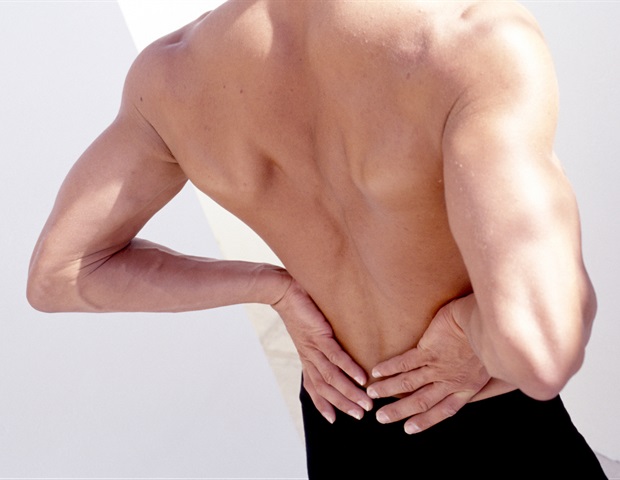
Continual ache is widespread in america, significantly amongst navy veterans, affecting between 40 to 70% of this inhabitants and serving as a number one explanation for incapacity. Veterans expertise power ache extra usually than civilians, with again ache being the commonest. As much as 75% of older veterans report power ache, whereas youthful veterans and people from current conflicts face extra extreme ache.
Continual low again ache in veterans impacts not solely bodily well being but additionally social and occupational functioning, usually resulting in job loss, monetary stress and financial instability. Moreover, veterans face increased charges of opioid prescriptions, growing the chance of dependancy and overdose. Treating power low again ache is difficult by comorbid circumstances linked to navy service, comparable to traumatic mind harm, PTSD and behavioral problems. Nonpharmacological approaches are important for efficient ache administration.
Researchers from Florida Atlantic College performed a pilot research to judge the efficacy of qigong on biopsychosocial outcomes in veterans with power low again ache. Qigong (pronounced “chee-gong”) is a standard Chinese language follow that mixes mild actions, managed respiration and meditation to domesticate and steadiness the physique’s power, also known as “qi” or “life pressure.”
The analysis crew designed a novel qigong program for this analysis particularly relevant to managing power low again ache in veterans. The aim of the eight-week longitudinal research was to judge the consequences of the qigong intervention on organic, psychological and social measures outcomes in veterans with power low again ache in comparison with a wait-list management group.
Particularly, researchers assessed how the intervention impacted bodily perform, sleep disturbance, PTSD, melancholy, nervousness, constructive have an effect on, and social roles and actions. These assessments have been performed at a number of factors in the course of the research to measure this system’s preliminary effectiveness.
Outcomes of the research, printed within the journal Ache Administration Nursing, point out that every one pain-related outcomes (ache depth, low again pain-related incapacity, and ache interference) decreased considerably within the qigong group in comparison with the management group. Along with power ache, sleep disturbance was considerably improved within the qigong group in comparison with the management group.
This holistic method addresses the complicated challenges confronted by veterans with power low again ache with out counting on medicines. Armed with this information, well being care suppliers, comparable to nurses and bodily therapists, ought to actively contemplate incorporating nonpharmacological interventions like qigong into therapy plans to boost the general well-being of veterans coping with power low again ache.”
Cheryl Krause-Parello, Ph.D., senior creator, FAU affiliate vp for analysis, founding director of Canines Offering Help to Wounded Warriors (C-PAWW), and affiliate govt director and college fellow, FAU Institute for Human Well being and Illness Intervention (I-Well being)
The research additionally discovered a big connection between organic components, comparable to irritation markers, and psychosocial outcomes. For example, increased ranges of tumor necrosis issue (TNF) have been strongly related to poorer bodily perform. Equally, the inflammatory marker IL-8 was linked to each pain-related incapacity and signs of PTSD. These findings recommend that irritation might contribute to each bodily and psychological well being challenges in people with power circumstances.
Qigong is simple to be taught, doesn’t require particular websites or gear, and will be practiced individually or collectively in quite a lot of types, from gradual, flowing workouts to nonetheless meditative postures. It’s usually used for leisure, therapeutic or non secular progress. It’s comparable in some methods to Tai Chi however is extra targeted on inner power work. Common follow of qigong gives a variety of remedy targeted on the backbone: mild bending, stretching and strengthening based mostly on the useful integrity of the backbone and connective mechanisms.
“Stretching, loosening, strengthening and balancing methods of qigong might launch again rigidity, ease ache and enhance flexibility and alignment,” mentioned Krause-Parello. “Qigong follow can strengthen the musculoskeletal system and enhance joint flexibility, motor perform and motion coordination. It may possibly activate postural enhancements and reduce ache. Importantly, it may well enhance bodily circumstances and psychosocial perform comparable to melancholy and social isolation in veterans with power again ache.”
Examine co-authors are Juyoung Park, Ph.D., The College of Arizona School of Nursing; and David Newman, Ph.D., professor and statistician, FAU Christine E. Lynn School of Nursing.
The findings from this research will assist the researchers discover the relationships amongst these biopsychosocial components and estimate the impact sizes obligatory for designing a totally powered scientific trial sooner or later.
Supply:
Journal reference:
Krause-Parello, C. A., et al. (2024). Analyzing Preliminary Efficacy of a Qigong Intervention in Veterans with Continual Low Again Ache: A Randomized Managed Pilot Examine. Ache Administration Nursing. doi.org/10.1016/j.pmn.2024.10.013.
